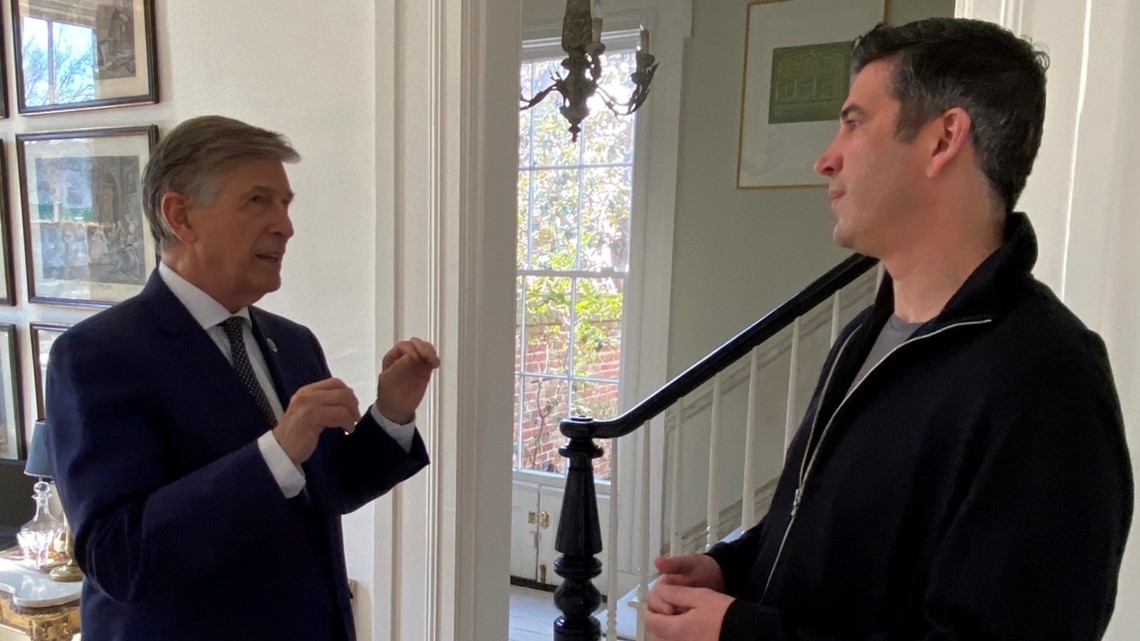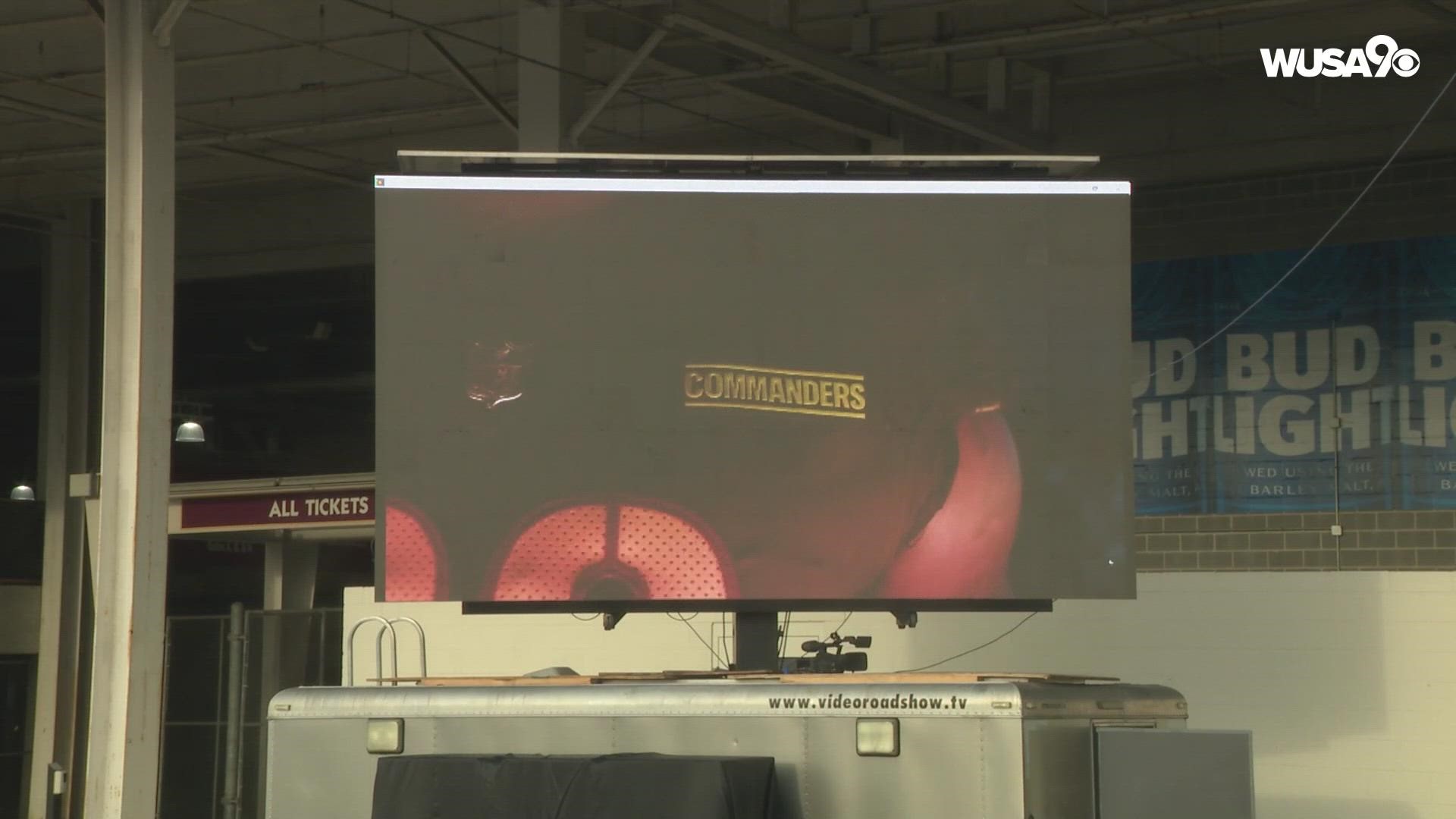ALEXANDRIA, Va. — A Virginia congressman wants to sack a financial incentive package aimed at luring the Washington Commanders' new stadium to the Commonwealth.
U.S. Representative Don Beyer, a Democrat who represents Virginia’s 8th Congressional District in the heart of Northern Virginia, said stadium bond packages like the one working its way through the Virginia state legislature takes needed tax revenue out of the pockets of taxpayers all to benefit people who have more than enough money to build new stadiums on their own.
“Dan Snyder just bought a $48 million home, just down the river in Alexandria and the team is worth way north of $3 billion,” Beyer said. “They should not be using scarce federal tax dollars to build a new stadium.”
Beyer introduced a bill in the U.S. Congress to eliminate the federal tax-exempt status of stadium bonds like the ones many state lawmakers in Virginia want to use to lure Washington Commanders owner Dan Snyder’s new stadium to the Commonwealth.
Right now, profits on bonds are not subject to federal income tax, which is part of the appeal to investors. Beyer's plan would require stadium bondholders to start paying federal income tax on the profits, just as they would with any other investment.


Beyer said his legislation wouldn't necessarily make bond packages financially less lucrative for the owner of sports franchises, but it would make the idea less palatable for Virginia and those who want to support the bonds.
“And in a perfect world, it would shift most of the burden back to the owner of the team to go borrow the money to build his own stadium, rather than have it fall on the taxpayers,” Beyer said.
The proposal to convince Snyder to build his state-of-the-art new stadium and football complex at one of three potential Northern Virginia sites, Sterling, Woodbridge or Dumfries, includes a one-billion-dollar bond package to help Snyder finance the project.
Fairfax County State Senator and majority leader Dick Saslaw, who wrote one of two versions of the stadium bill working its way through the legislature, told WUSA9 earlier in February the bonds would be repaid using a billion dollars of the future tax revenue generated by the new stadium.
Saslaw said that is better than stadium deals in Las Vegas and Atlanta, built with the help of hundreds of millions in upfront taxpayer dollars.
“We are not funding a nickel, not a nickel of that project,” Saslaw said of his stadium proposal.
Still, under Saslaw’s plan, the state would forgo a billion dollars in future stadium tax revenue that would otherwise go to fund government services.
“At a time when we're trying to figure out how to afford child tax credits, how to lift up minimum wage, how to make sure teachers are well paid how to pay for an infrastructure bill,” Beyer said, “it just seems crazy that we would choose a new stadium over those.”
Beyer said there is also mounting evidence from stadiums built around the country in taxpayers don’t always get back what they put into it. The Super Bowl was just played in the $5 billion SoFi Stadium, paid for entirely with private, not public money.
It is unclear at this point if Beyer’s legislation could be passed in time to impact Virginia’s stadium bond plan. The Congressman noted it is competing for attention with a number of other huge federal priorities and would likely require passage sooner rather than later to impact the stadium bill in Virginia, which already has bipartisan support.

